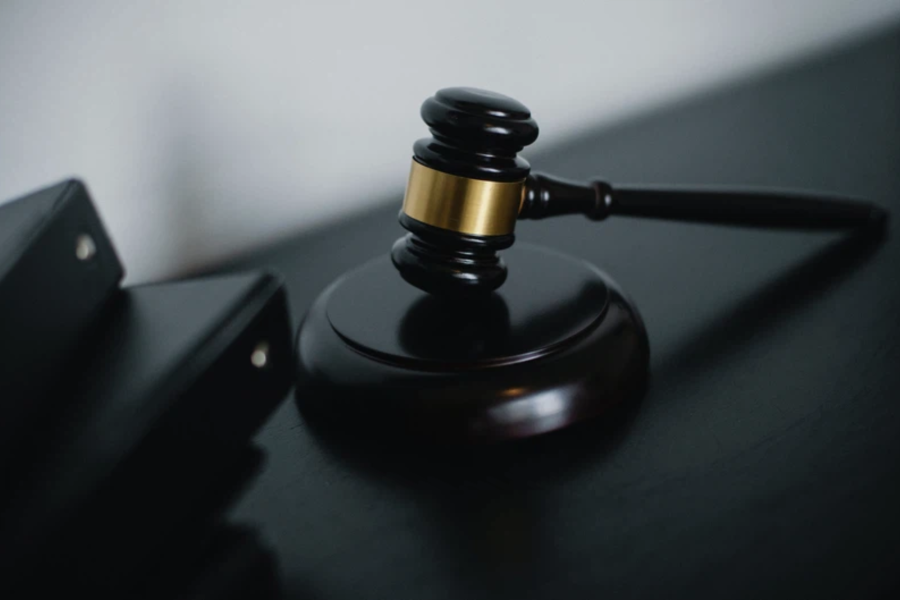
Delays in SA’s legal system keep courts in waiting
South Africa has one of the best constitutions in the world, but system delays means that justice isn’t always served in due time. Delays in the High and lower courts are happening due to heaps of backlogged court paperwork, investigative evidence delays, and understaffed courts. A plethora of cases remain stuck in the legal system awaiting […]

South Africa has one of the best constitutions in the world, but system delays means that justice isn’t always served in due time.
Delays in the High and lower courts are happening due to heaps of backlogged court paperwork, investigative evidence delays, and understaffed courts. A plethora of cases remain stuck in the legal system awaiting resolution.
Courtroom delays can affect the victims of crime, but may also impact the accused who are awaiting a fair trial from within the prison system.
Maintenance claims, divorce disputes, court orders, and fair trials can last for years — even though the law has to conclude cases within a reasonable timeframe.
The Judiciary Annual Report for 2021/2022 (24 February 2023) outlines the need for a faster, more effective court system in the country.
The South African website looked at the state of local courts, and how to complain about delays within the local legal system.
ALSO READ: Weather warning: Damaging winds and waves in KwaZulu-Natal
AWAITING TRIAL CAN BE A VERY LONG WAIT
Reports on the state of South Africa’s prisons in 2014 reported an estimated prison population of 162 162 people, of which at least 49 695 (31%) were currently awaiting trial.
If someone has been arrested, South African law stipulates that the suspect has to be brought before court within 48 hours.
However, once someone has been charged with a crime and processed into the prison system, they are referred to as awaiting trial persons (ATPs).
Awaiting trial doesn’t mean that someone has been found guilty: only that their case has to appear before court. Delays are common for South Africa’s prisoners who are still awaiting their time in court.
In 2000, Julia Mashele was acquitted in the Pretoria Regional Court after 6 1/2 years awaiting trial as one of South Africa’s lengthiest awaiting-trial examples.
In 2013 new laws were suggested to parliament in an attempt reduce the amount of time suspects may spend awaiting trial to a maximum of 2 years. Cases heard in the Gauteng High Court in 2018 still presented with individuals who had been awaiting trial for over 6 years.
Lengthy delays in a case or trial may be forwarded to the relevant committee (see section at the end of this article).
ALSO READ: Johannesburg residents wake up to rare snowfall
THE DELAY WITHIN SA’S HIGH COURTS
The South African Judiciary website points out that High Courts are meant for major cases and claims that fall outside the capacity of the lower courts.
According to the 2021/2022 Annual Judiciary Report, South Africa is still facing a major backlog of criminal cases from its High Courts.
In an attempt to deal with High Court delays, Chief Justice Raymond Zondo has outlined the importance of an easier, Court Online system for the future. Partially, Court Online has already been rolled out in the Gauteng High Court.
With reduced future queues within the justice system, it is hoped that this move can add to the necessary progress.
ALSO READ: Disruptive rain and thundershowers expected in THESE parts of KZN
WHAT ABOUT THE REGIONAL & MAGISTRATE’S COURTS?
Regional and Magistrate’s courts deal with serious criminal cases (such as serious assault, armed robbery, or murder) and other claims (such as maintenance or protection order applications), according to the Department of Justice.
In an attempt to curb the justice system delay, Minister of Justice & Correctional Services Ronald Lamola appointed 43 new judges across the Regional and Magistrate’s courts — effective from the 1st of May, 2023.
ALSO READ: Weather warning: 80km/h winds and 8m waves in two provinces
HOW TO COMPLAIN ABOUT COURT DELAYS OR MISCONDUCT
If you have a valid complaint against a prosecutor, magistrate, or judge within the South African courts, it’s important to lodge your matter with the correct department.
According to the South African government’s website, each branch of the court has its own commission to investigate complaints.
Complaints Against Judges
The Judicial Services Commission (JSC) handles inquiries and complaints against higher court judges. A complaint regarding a judge is submitted to the Judicial Conduct Committee (JCC) for further investigation.
Complaints Against Regional or Magistrate’s Court Judges
Complaints against regional or magistrate’s court judges go to the Magistrate’s Commission (MGC).
Complaints Against Prosecutors
Complaints against prosecutors have to go through the National Prosecuting Authority (NPA) for further investigation. The NPA also maintains an anti-fraud and complaints hotline at 0800 212 580.
This article was originally published by Alex Coyne.